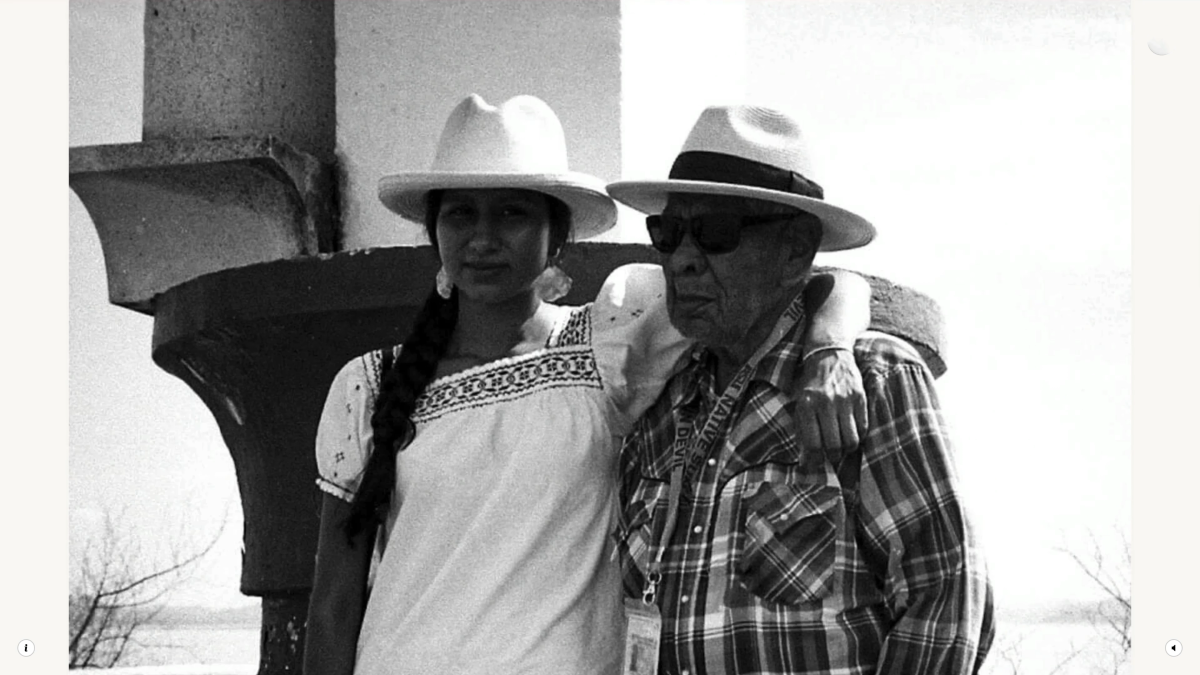
- Details
- By S, Clare Witt, ASU News
Selina Martinez is on a mission to tell the story of the Yaqui, a group of Indigenous peoples originally from Sonora, Mexico, who now inhabit regions on both sides of the United States–Mexico border.
An alum of The Design School at Arizona State University and a member of the Yaqui (or Yoeme) community herself, Martinez was recently awarded the Radical Imagination Artist Grant from the NDN Collective, an Indigenous-led organization dedicated to building Indigenous power, for her work related to spreading awareness and educating others about the Yaqui.
Martinez’s journey started with an independent project during her architecture master's degree program at The Design School. Her research focused on cultural keystone species, specifically related to the Yaqui, and an architecture project done in the town of Guadalupe, Mexico.
With the $50,000 in funding she received from NDN Collective to continue her work, Martinez has created Juebenaria, a digital platform that uses videos, maps, historical timelines, 3D models and written resources to more accurately tell the story of the past, present and future of the Yaqui.
The success of Juebenaria has now led to a collaboration with the Santo Domingo Centre of Excellence for Latin American Research at the British Museum. Impressed by Martinez's 3D scans, the museum partnered with her to develop the Species of the River project. Species of the River uses 3D models of collections and spaces, historical and contemporary audio recordings, photography and illustrations to walk viewers through Yaqui territory. Since many of the Yaqui have migrated away from their original territory, they may have never had the opportunity to visit their homeland.
“Because of that disconnection from our homelands,” Martinez said, “(Yaqui) have to face potential losses as we evolve in the American context.”
By creating a digital platform that houses all the traditions of the Yaqui land, Martinez aims to provide easier access for Yaqui people to learn about their traditions and avoid more losses of information.
Now that Species of the River has been fully developed, Martinez is focusing on promoting the project and the possibility of having more variations.
“This could lead to more 3D environments with additional educational information,” she said. “Ideally, that would be built with the community more deeply for educational purposes. I could also see other tribes using this as an example and to preserve their culture through the same means and methods to appeal to the next generation.”
For now, she invites people to explore the rich history of the Yaqui through their smartphones or computers, making cultural preservation more accessible than ever before.
Help us defend tribal sovereignty.
At Native News Online, our mission is rooted in telling the stories that strengthen sovereignty and uplift Indigenous voices — not just at year’s end, but every single day.
Because of your generosity last year, we were able to keep our reporters on the ground in tribal communities, at national gatherings and in the halls of Congress — covering the issues that matter most to Indian Country: sovereignty, culture, education, health and economic opportunity.
That support sustained us through a tough year in 2025. Now, as we look to the year ahead, we need your help right now to ensure warrior journalism remains strong — reporting that defends tribal sovereignty, amplifies Native truth, and holds power accountable.
 The stakes couldn't be higher. Your support keeps Native voices heard, Native stories told and Native sovereignty defended.
The stakes couldn't be higher. Your support keeps Native voices heard, Native stories told and Native sovereignty defended.
Stand with Warrior Journalism today.
Levi Rickert (Potawatomi), Editor & Publisher

